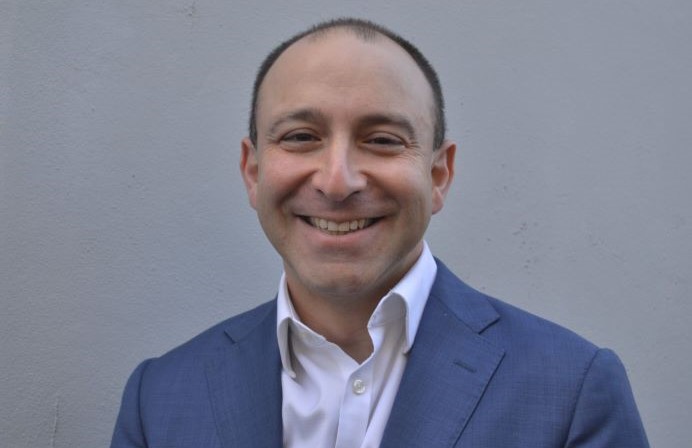
Founder of Clearmatch and Co-founder of SocietyOne, Greg Symons, sheds light on how banks can learn from the rise of digital disruptors like Apple and Google and their intelligent use of data.
FST Media: What are your key priorities for the next 12 to 18 months?
Symons: Our priorities are two-fold: firstly, we need to keep educating the market about the advantages of marketplace lending as a real financial alternative to banking. This is quite a big task, but we are no longer the only ones evangelising the category. With more and more peer-to-peer and marketplace lenders joining the fray, there is now considerable momentum worldwide – including Australia – around the fintech space.
Secondly, we are passionate about bringing empowerment to the finance market itself. Empowerment has to be customer-led. There is a substantial ecosystem of important contributors in the financial industry, that when brought together on a customer-centric platform, can deliver substantial value to the market.
Our next 12 to 18 months will be focussed on maximising our customer experience in our loan marketplace bringing more opportunity for specialists to collaborate with us by integrating deeper into the industry.
FST Media: What is the ‘holy grail’ that is yet to be delivered in financial services?
Symons: We believe the “Aha!” moment is bringing the world of fixed income investment hunters together with quality sources of loan assets. Clearmatch’s ability to originate and manage loans and leases from consumer assets through to commercial, secured and unsecured all exposed in a single investor marketplace is powerful. Building on the already significant volume through the marketplace, our holy grail is finding the highest level of conversion in the marketplace that safely supports the appetite of both sides of the marketplace.
FST Media: What are your thoughts on the increasing prominence of peer-to-peer (P2P) lending in Australia – do lenders like SocietyOne represent a threat to banks or an opportunity for innovation in the financial sector?
Symons: Banks used to have complete control over where the money came from and where it went. However, with the erosion of institutional trust and the rise of peer trust in the digital economy, the race is on worldwide for disruptors and incumbents alike to win over a new generation of consumers who favour fast and convenient credit solutions. This millennial generation is driving a big part of this digital revolution: 43 per cent of Australians relate to or understand sharing economy behaviors such as carpooling, house swapping, crowdfunding, carsharing and co-working. They recognise that by removing redundant intermediaries and connecting people directly you can create real value, rather than allowing the middlemen to take all profit.
Australia is dominated by four banks that are among the most profitable in the world, but the average consumers are not really seeing any of the benefits. Instead, they perceive layers of financial middlemen, complicated processes and complex systems, high fees and a general lack of transparency that has contributed to eroding trust (and Net Promoter Scores).
As a result, banks are being disrupted in payments, lending and investing from a new breed of fintech challengers. It is like a death by a thousand cuts as the banks are slowly losing important pieces of their value distribution chain. We think there is room for players to build niche, credit purposes and role for P2P players to coexist comfortably with incumbents. It is good to have a diversity of choice for borrowers and investors.
It is the classical innovator’s dilemma: when faced with a potential threat from a disruptive technology, should a bank cannibalise their existing margins or keep banking their profits? If they decide to meet the market and move towards what marketplace lenders do naturally, that is – offer more competitive, tailored rates – they may have to reprice a rather healthy back book and take a big hit on profitability.
They may not be ready to do that. Analysis by Morgan Stanley, for example, forecasts rapid growth for the industry in the coming years with new market entrants and greater awareness. They predict that total marketplace lending for Australia (consumer and SME lending) by 2020 can reach $18.9 billion, or 10 per cent of the total addressable market, a phenomenal growth rate by any measure.
FST Media: You recently spoke as part of our Innovation Leaders panel at our recent Technology & Innovation – the Future of Banking & Financial Services conference in Sydney. Can you tell us more about what is needed to help drive innovation into the DNA of an organisation?
Symons: Curiosity is at the heart of our DNA and a core value of our company. Curiosity is the focus for every thriving and disruptive company, helping them to understand how their employees think and engage, while creating the ultimate in increased revenue and job satisfaction.
Our approach to discovery and insight not only leads to greater job satisfaction and productivity, but also to greater employee engagement. Working and thinking of smart-creative ways to solve problems energises everyone at Clearmatch and helps drive the transformational change we live and breathe as a financial disruptor. In the nine years that we have been in operation, we have had only one employee leave the company in 8 years. If that’s not validation of the motivational power of curiosity, I do not know what is.
FST Media: How is SocietyOne harnessing the power of social media to engage with a growing Gen Y customer base?
Symons: Social media is an amplifier of your strengths and weaknesses, so we are very careful about how we use and engage via social. We are available 24/7 on Twitter and Facebook to respond to any customer issues. However, before we roll out gimmicky hashtags, we are making sure we have a killer product that customers care to talk about. The only way to build trust and a superior product is by continuing to innovate and improve the user experience by making the process easier, faster and more rewarding.
Our business is all about connecting people, so we are naturally keen to give customers the opportunity to share their experience. For example, one of our big initiatives has been to empower consumers by giving them free access, for the first time, to their personal credit score. Through a partnership with Veda, we launched GetCreditScore.com.au and helped over 200,000 Australians get access to their credit score to better manage their credit health. Many of them have since been empowered to pursue a better deal on credit with their financial institutions and hopefully save money.
FST Media: How can banks learn from the rise of digital disruptors like Apple and Google and their intelligent use of data?
Symons: Global technology companies like Facebook, Google and Apple have vast amounts of rich data, customer trust and massive daily interaction and engagement with billions of users and followers. The combination of this rich data sets, customer trust and huge engagement amounts to massive financial disruption.
Nearly half of millennials are expecting technology companies and fintech startups like this to overhaul the way banks work; they believe innovation will come from outside the traditional banking industry. 73 per cent of millennials are more excited about a new offering in financial services from Google, Amazon, Apple, PayPal or Square than from their own banks.
However, we believe these tech giants are really a component of a much larger ecosystem where they collaborate to form a marketplace. Alibaba, for example, partnered with the biggest marketplace lender in the US, Lending Club, to provide US-based customers of Alibaba with an online credit line to make purchases on the Chinese marketplace. This was all powered by Lending Club’s online lending platform. Lending Club formed a similar kind of partnership with Google, offering a way for businesses that resell Google’s services to get access to low-cost financing. These partnerships are evidence of how we envision the ecosystem to work between a platform owner like Clearmatch and even the world’s biggest tech companies.
FST Media: How do you define success?
Symons: Success for us is when we safely and responsibly have brought fixed income investment hunters together with quality sources of loan assets en masse. Whether it’s vehicle finance, consumer loans, retail loans and other specialised type of finance, our mission is to empower the ecosystem players within the finance industry to also become part of this evolution.
FST Media: Every leader has a legacy they wish to be remembered for, what is yours?
Symons: Hopefully, impeccable timing! When I discovered P2P lending back in 2007, the term was barely even indexed by Google. However, I knew then that I was looking at the future of banking.
Perhaps I also want to be remembered for my tenacity. I have weathered quite a bit of adversity as an entrepreneur, but through it all, I have been able to create my true vision of what a responsible, consumer-centric financial organisation should look like. Together with my core tech team of incredibly dedicated and hardworking developers and engineers, we have built a radically transparent and robust platform for the next generation of financial companies and my children’s generation.





